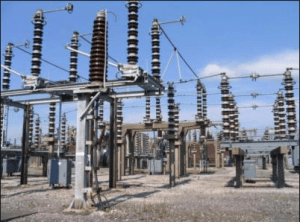58 communities connected to national electricity grid last six months – Ofori-Atta
 Some 58 communities have been connected to the national electricity grid from January to June this year, Mr Ken Ofori-Atta, the Minister of Finance, has said.
Some 58 communities have been connected to the national electricity grid from January to June this year, Mr Ken Ofori-Atta, the Minister of Finance, has said.
Delivering the Mid-Year Budget Review in Parliament Monday, the Finance said efforts were underway to connect more communities to the national grid.
“We have, between January to date, connected 58 communities to the national grid as at end of June of 2022 with several communities at various stages of completion,” he said.
Outlining some developments in the energy sector, Mr Ofori-Atta said the Government had also completed the Kasoa Bulk Supply Point (BSP) Project, which comprises the reconstruction of a section of GRIDCO’s 161kV Winneba-Mallam transmission lines and tie-in-works.
He said work on the Volta-Achimota Lot of the 161KV Volta-Achimota-Mallam Transmission Line Upgrade Project was 85 per cent complete.
The Finance Minister said the Government, in March this year, also commissioned the Solar Irrigation Project at the Ho Technical University to promote renewable energy systems.
The Projects, he said, formed part of measures to improve transmission and reliability of power supply and expand energy to all Ghanaians.
Mr Ofori-Atta reiterated that the country had saved about US$13.2billion in renegotiating power purchase agreements with six different independent power producers (IPPs).
“These renegotiated agreements are expected to have savings estimated at US$13.2 billion over the life of the PPAs through a combination of reduced capacity and energy charges,” he said.
Delivering the 2022 State of the Nation Address in March this year, President Nana Addo Dankwa Akufo-Addo said 279 communities had been connected to the national electricity grid under the National Electrification Scheme.
The development, the President said, increased the national electricity access rate from 85.17 per cent in 2020 to 87.03 per cent as of January 2022.
The Ministry of Energy announced in June 2019 that it had pushed back its target date for achieving universal electricity coverage from 2020 to 2025.
The Ministry explained that the extension was to allow for the implementation of new measures to enhance energy efficiency and improve electricity supply to rural parts of the country.
In 1989, Ghana rolled out a 30-year National Electrification Scheme to achieve universal access to reliable electricity supply between 1990 -2020.
As of that time, the country had attained a National Electricity Access of about 25 per cent with only 5 per cent rural penetration.
Consequently, Parliament passed the Renewable Energy Act, providing the legal and regulatory framework necessary for enhancing and expanding the country’s renewable energy sector.
Source: GNA
